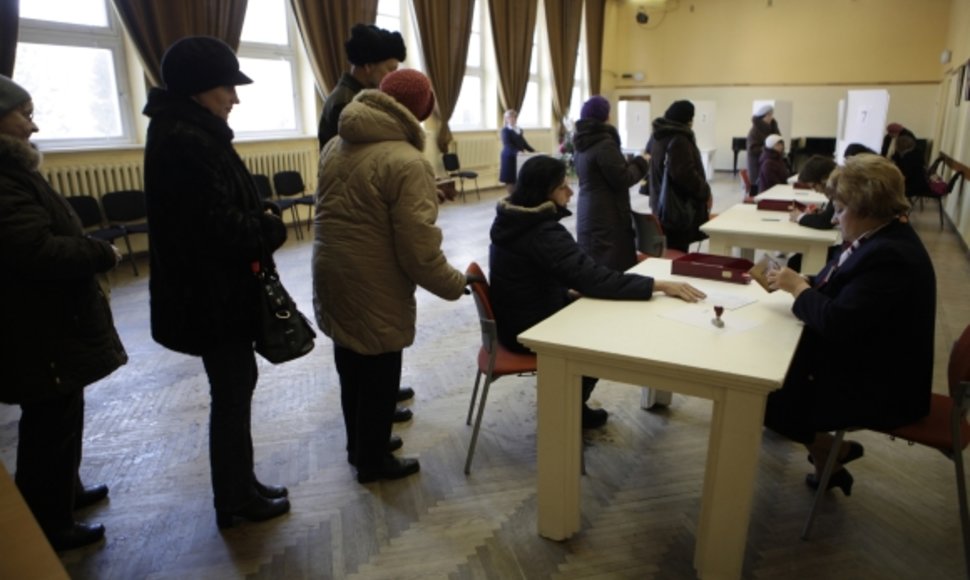After counting votes in two thirds of all the constituencies, the results are that 78 percent of voters in the referendum do not want Russian to be granted the status of a state language.
The turn-up of the Saturday's referendum was 69 percent. In order for a referendum to be valid, at least half of all the voters must come to the polls.
Earlier on Saturday, political scientist Mindaugas Jurkynas predicted that Latvians would turn down the proposal of a second state language.
"Whether people will not come or will vote against, I believe that the Russian language will not become the second state language in Latvia. It's a too-sensitive issue of Latvian identity," Jurkynas, a lecturer at the Institute of International Relations and Political Science of Vilnius University, told BNS.
 |
| Asmeninio archyvo nuotr./Mindaugas Jurkynas |
In his words, the referendum is taking place as the Harmony Center, the party uniting Latvia's Russian-speaking population and which received the majority of votes in the last general elections, wants to keep its electorate united.
"A failed referendum would prevent the Russian language from getting the status but would still be of service as a political measure aimed at mobilizing Russian-speaking voters," Jurkynas said.
The expert believes that the referendum is also closely related to the legacy of the Soviet occupation as the Russian ethnic minority is considered to be people who did not come to Latvia naturally.
"It's a consequence of the Soviet occupation and annexation, sometimes also strongly called the legacy of the Soviet colonialism," the expert said.
According to Jurkynas, the ethnic dimension has been an important aspect of Latvia's politics for the past 20 years. Russia has always tried to make advantage of this factor, he believes.
"It's huge influence of Russia and Russian media in Latvia," the Lithuanian political scientists said, adding that those unsatisfied are always much easier to mobilize during an economic recession.
Ethnic Russians make up 27 percent of the total population. According to the 2000 census, 37.5 percent of Latvia's population speak Russian as their native language, whereas Latvian was recorded as the mother tongue for 58.2 percent.












